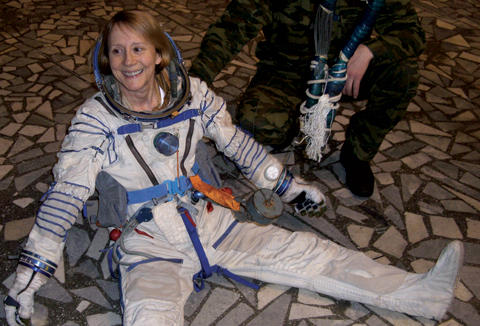Women on Top in Tech: Esther Dyson, Linda Avey, Carol Bartz, Winifred Mitchell Baker and more
They manage millions, lead companies, and even fly into space. Women may be underrepresented in Silicon Valley, but their numbers are growing. More CEOs and venture capitalists than ever before are female. And as you’ll see in the following profiles, they’re anything but underachievers.

[highlight_text] “My father helped design a rocket ship (the Orion Project) back in the ’50s, so I just assumed I would visit the moon well before 2000.” [/highlight_text]
Esther Dyson
Company: EDventure
Home: Manhattan
Dyson’s home is technically in Manhattan, but one could argue that her presence is felt the strongest in Silicon Valley. Since the early 1980s, she has been a visionary in predicting how technology innovations will impact business, society, and people.
Her investments include Airship Ventures, a Bay Area zeppelin tour company, 23andMe of Palo Alto, Flickr, now owned by Yahoo! in Sunnyvale, California, and Delicious, which was also bought by Yahoo! She’s also involved in several Internet non-profits including ICANN and the Long Now Foundation.
Dyson began a career as a journalist when she started the Dyson Gazette using carbon paper at the age of eight. The daughter of physicist Freeman Dyson and mathematician Verena Huber-Dyson, she had healthy curiosity at a young age.
After graduating from Harvard in economics, she joined Forbes as a fact-checker and quickly became a reporter. After a stint at Oppenheimer covering software companies, she moved to Rosen Research and, in 1983, bought the company from her employer Ben Rosen, renaming it EDventure Holdings.
“As it happens, newsletters are great cash collectors: you get the cash and then you deliver the service,” Dyson said in an email interview from the Yuri Gagarin Cosmonaut Training Center in Star City, Russia, where she’s training to become a cosmonaut. “So I bought him out for approximately the cash that was in the business, and we both were happy.”
She sold EDventure Holdings to CNET Networks in 2004, left CNET in late 2006, and has operated as an independent investor and entrepreneur. In recent years her focus has turned towards space exploration, hence the cosmonaut training.
“I woke up in the mid-90s and discovered [space travel] still hadn’t really happened the way I had expected-it was still a few government projects rather than a vibrant commercial market-and so I got interested in figuring out why not and what to do about it,” Dyson said. “My father helped design a rocket ship (the Orion Project) back in the ’50s, so I just assumed I would visit the moon well before 2000.”
Dyson is training to be a backup for Charles Simonyi, who’s scheduled to take his second trip in a Soyuz spacecraft to the International Space Station on March 26. One of Dyson’s investments, Space Adventures, sells space flight training packages to civilians for about $30 million. “As an investor, I couldn’t refuse!” she said.












